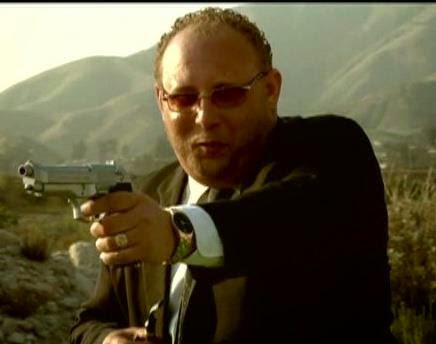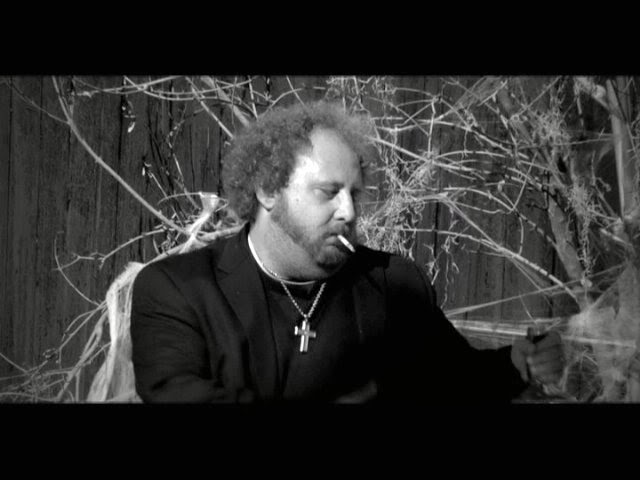Anthony Quinn, Jackie Gleason, Mickey Rooney.
Written by Rod Serling.
Sharks have Jaws, the mafia has The Godfather, Satan has The Excorcist and boxing has Raging Bull. It seems every film genre and sub-genre has it's crown jewel and the standard is usually a tremendous drop in all-around quality when discussing a "runner up." We're talking serious fallout of nuclear proportions. It's a rare occasion when a particular genre can have a second film even mentioned in the same breath as a classic, and the boxing genre, I believe, is exceptionally special because it offers two films. As evidence I suggest one either re-watch Rocky, or sample today's morsel, 1962's Requiem for a Heavyweight. It has a powerful performance from Anthony Quinn as the titular pugilist, it has a supporting cast that boasts the legends Jackie Gleason and Mickey Rooney and it has a brilliant screenplay from Rod Serling that elevates it (dare I say it?) past Rocky and makes a very serious run at Raging Bull as the greatest boxing movie of all time.
The film opens with Quinn's Louis "Mountain" Rivera, a punchy, seventeen year veteran of the squared circle in a heavyweight title fight against Cassius Clay, cameoed by Ali himself. In round seven, Rivera goes down for the count having sustained horrible damage to one of his eyes. So much in fact, that the ring doctor suggests Rivera retires because just a few more shots to the head could lead to blindness.
The problem with retirement is, at age 35, Rivera has no other skills to make a living on. Also, his manager, Maish Rennick (Gleason) and trainer, Army (Rooney) have no other ponies in their stable. It's Rivera or nothing for Maish and Army, and for Rivera, it's the ring or nothing, until he meets Grace Miller (Julie Harris), a kind-hearted civil servant in the employment agency Rivera registers with. Grace thinks Mountain would be perfect as a counselor at a camp for troubled boys, while Maish is scrambling to get him into professional wrestling.
These two subplots are not only riveting as they stand alone, but they intertwine late in the third act most effectively, completing the totality of Requiem as a story, and is a wonderful testament to Serling the writer. Grace enters Mountain's world to better understand him, realizing he would be perfect as the counselor, and pulls every string she has to set him up with an interview. There is something very pleasing about watching the infancy of potential romance between the two bubble up. Meanwhile, Maish is in debt to the local hoods, laying promise upon promise that he is, in no way, capable of keeping. He sees pro wrestling as the only alternative, and in his defense he sincerely has the best interests of himself as well as Mountain and Army in mind. That is until he hears about the potential camp counselor thing, and this is where Maish goes from fairly likeable to moderate scumbag as he implements sabotage.
Mountain is too naive, childlike when it comes to nearly everything, as is evidenced in his social awkwardness with Grace, and his blind trust in Maish and Army, having been taken care of by them for his entire, seventeen year career. It's far too easy for Maish to get Mountain drunk (under the guise of celebration) and make him late for his interview, where the drunken Mountain makes a fool of himself, ruining any chance of being a counselor or hooking up with Grace. All the while, Army is torn between is loyalty to Maish, and what he knows is best for Mountain.
Quinn shines as Mountain Rivera, creating a character different than Robert DeNiro's Jake La Motta (as he was a wife-beating asshole) but it's also a character more sympathetic and loveable than Rocky Balboa, which is a feat in and of itself, despite preceding Rocky by about a decade. Put Requiem for a Heavyweight at the top of your "things to do" list immediately. You have the Turzman guarantee that it will be wonderful.

Guardian of the Universe, Gamera says, "For a movie about fighters, there's not a lot of fighting in it. Not like my epic battles versus the likes of Guiron or the Gyaos', anyway."






No comments:
Post a Comment